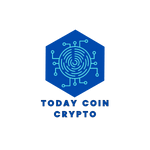Exploring the Potential of Aether: Decentralized Finance and Beyond

Table of Contents
In the ever-evolving landscape of financial systems, a groundbreaking force has emerged, promising to redefine the way we interact with money and assets. This force is known as Aether, a decentralized finance and immutable network that has captivated the attention of innovators, investors, and financial enthusiasts alike. Aether, often heralded as the next frontier of finance, represents a paradigm shift that transcends traditional structures and opens up new realms of possibility for the global economy.
Introduction to Aether and Decentralized Finance (DeFi)
In the ever-evolving landscape of blockchain technology, Aether represents a fascinating concept that has captured the imagination of developers and enthusiasts alike. Aether is not just another cryptocurrency; it is an ambitious endeavor to harness the power of decentralized finance (DeFi) and unlock its full potential. By combining the principles of blockchain with DeFi, Aether aims to create a new paradigm of financial systems that are open, transparent, and accessible to all.
Decentralized Finance (DeFi) is a revolutionary movement that leverages blockchain technology to recreate traditional financial services in a decentralized finance and permissionless manner. It enables individuals to access financial tools and services without the need for intermediaries like banks or financial institutions. By eliminating centralized control and introducing smart contracts, DeFi applications offer security, transparency, and efficiency to users.
Understanding the Concept of Aether in Blockchain Technology
At its core, Aether is a blockchain network designed to support DeFi applications while ensuring scalability, security, and sustainability. The term “Aether” draws inspiration from ancient philosophical beliefs, where Aether represented the element that filled the celestial heavens, believed to be the essence of the cosmos. In a similar vein, Aether in blockchain technology symbolizes a transformative force that has the potential to revolutionize the financial landscape.
Aether leverages a consensus mechanism, often based on Proof-of-Stake (PoS) or other cutting-edge protocols, to validate transactions and secure the network. By doing so, it ensures a more environmentally friendly approach compared to energy-intensive Proof-of-Work (PoW) systems. Additionally, Aether incorporates interoperability features, allowing seamless communication between different blockchain networks and DeFi ecosystems, fostering a truly interconnected and collaborative financial ecosystem.
Aether’s focus on sustainability and scalability is crucial, as it addresses some of the significant challenges faced by existing blockchain networks and DeFi applications. High transaction fees, slow confirmation times, and limited scalability have hindered the widespread adoption of blockchain technology. Aether seeks to overcome these barriers and pave the way for a more inclusive and efficient financial future.

The Rise and Evolution of Decentralized Finance (DeFi) Ecosystem
The rise of DeFi has been nothing short of meteoric. In just a few short years, it has grown from a niche concept to a global movement, transforming the way we perceive and interact with finance. The DeFi ecosystem encompasses a wide array of applications, including decentralized finance exchanges (DEXs), lending and borrowing platforms, stablecoins, yield farming protocols, and more.
One of the cornerstones of DeFi’s success is its ability to democratize financial services. Anyone with an internet connection can participate in DeFi without the need for a bank account or credit history. This accessibility empowers individuals in underserved regions and promotes financial inclusion on a global scale.
As DeFi gained traction, it also brought to the forefront some challenges that needed addressing. Smart contract vulnerabilities, regulatory uncertainties, and the need for increased security measures were some of the obstacles that the DeFi ecosystem had to overcome. Consequently, developers and auditors put considerable effort into enhancing the security and robustness of DeFi protocols.
With the advent of Aether, a new chapter unfolds in the evolution of DeFi. By providing a scalable and sustainable blockchain platform, Aether aims to take DeFi to new heights. Interoperability features offered by Aether foster collaboration among various DeFi projects, encouraging the seamless transfer of assets and liquidity across the ecosystem. This interconnectedness holds the potential to unlock new financial opportunities and redefine the way we interact with money and assets.
Aether’s Role in Decentralized Finance
Decentralized Finance (DeFi) has been one of the most transformative developments in the financial world, providing an alternative to traditional centralized systems by leveraging blockchain technology. Among the myriad blockchain projects, Aether stands out as a groundbreaking platform that seeks to revolutionize the DeFi landscape.
At its core, Aether is a decentralized finance network built on a robust blockchain infrastructure that enables the creation and deployment of smart contracts, making it possible to develop a wide array of financial applications without the need for intermediaries. Its primary objective is to democratize finance by promoting transparency, accessibility, and inclusivity in the financial sector.
A Deep Dive into Aether’s Architecture and Mechanics
Aether’s architecture is designed with a focus on scalability, security, and efficiency. The platform operates on a consensus mechanism that ensures decentralized finance decision-making, typically based on Proof-of-Stake (PoS) or a novel consensus algorithm developed to suit Aether’s specific requirements.
Smart contracts form the backbone of Aether’s infrastructure. These self-executing contracts enable automated transactions and agreements, eliminating the need for traditional intermediaries such as banks, brokers, or lawyers. The smart contracts are executed across a distributed network of nodes, ensuring tamper-resistant and censorship-resistant operations.
Aether also places a strong emphasis on privacy and data protection. Through advanced cryptographic techniques, users can maintain control over their financial information while still participating in various DeFi applications. This approach enhances trust and attracts users who prioritize the security of their personal and financial data.
Exploring Aether’s Unique Features for DeFi Applications
- Interoperability and Cross-Chain Compatibility: Aether aims to foster interoperability among different blockchain networks. By doing so, it enables seamless transfer of assets and liquidity across multiple DeFi platforms. This cross-chain compatibility reduces fragmentation within the DeFi space and promotes liquidity sharing, ultimately benefitting users and developers alike.
- Aether’s Decentralized Exchange (DEX): Aether hosts its decentralized exchange, allowing users to trade digital assets in a peer-to-peer and trustless manner. The DEX is powered by liquidity pools that ensure efficient asset swapping and low slippage. Moreover, the decentralized nature of the exchange mitigates the risks associated with centralized exchanges, such as hacks and custodial control of funds.
- Yield Farming and Staking Incentives: To encourage active participation and network security, Aether offers yield farming and staking incentives. Users can lock their assets in smart contracts and earn rewards in the form of additional tokens. These mechanisms not only foster engagement but also ensure that the platform remains secure and decentralized.
- Decentralized Lending and Borrowing: Aether facilitates decentralized lending and borrowing, allowing users to access credit without relying on traditional financial institutions. Through smart contracts, borrowers can access funds from lenders globally, and lenders can earn interest on their holdings. This feature promotes financial inclusion and democratizes the lending process.
- Synthetic Assets and Derivatives: Aether enables the creation of synthetic assets and derivatives through smart contracts. These financial instruments mimic the value of real-world assets, such as stocks, commodities, or fiat currencies, providing users with exposure to traditional financial markets within the decentralized finance realm.

Aether’s Impact on Traditional Finance and Beyond
The world of finance is witnessing a groundbreaking revolution fueled by decentralized finance technologies, and at the forefront of this transformative movement lies Aether. Aether represents the next generation of blockchain-powered decentralized finance (DeFi) systems that are poised to disrupt traditional financial systems as we know them.
One of the key impacts of Aether on traditional finance is its ability to eliminate intermediaries. Traditional financial systems often involve various intermediaries, such as banks, clearinghouses, and payment processors, which can slow down transactions and lead to higher fees. Aether’s decentralized finance nature allows for direct peer-to-peer transactions without the need for intermediaries, reducing costs and increasing transaction speed.
Furthermore, Aether’s smart contract capabilities enable the automation of complex financial operations, such as lending, borrowing, and asset management. These self-executing contracts not only streamline processes but also eliminate the need for trust in counterparties, as the terms and conditions of agreements are automatically enforced by the underlying blockchain.
Also, read: Understanding Bitcoin: The Rise of Digital Currency
The Disruptive Potential of Aether in Traditional Financial Systems
Aether’s disruptive potential goes far beyond mere cost reduction and automation. Its decentralized finance infrastructure challenges the very core of traditional financial systems. By operating on a distributed ledger, Aether eliminates the single points of failure and vulnerabilities associated with centralized systems, making it more resilient to cyber-attacks and security breaches.
Moreover, Aether fosters financial inclusion by removing barriers that have long excluded large segments of the population from traditional financial services. In many parts of the world, people lack access to basic banking services due to stringent requirements, geographical limitations, or lack of identification documents. Aether’s decentralized platform allows anyone with an internet connection to participate in financial activities, bridging the gap between the banked and unbanked.
Aether’s potential for tokenization also introduces exciting opportunities in the realm of asset ownership. Traditional finance often restricts ownership to those with significant capital, locking out smaller investors from lucrative assets. Through tokenization, Aether enables fractional ownership, allowing investors of all sizes to hold shares in real estate, art, and other valuable assets. This democratization of ownership opens up a vast array of investment possibilities.
The Role of Aether in Financial Inclusion and Global Access to Services
Financial inclusion is a critical goal for economies worldwide, and Aether is proving to be a catalyst in achieving this objective. With its decentralized infrastructure, Aether creates an inclusive financial ecosystem where anyone with a smartphone and internet access can access a wide range of financial services.
Aether’s permissionless nature empowers individuals in regions with limited banking infrastructure to participate in global markets. People from remote areas can now engage in cross-border transactions, remittances, and investment opportunities, without relying on costly and time-consuming intermediaries.
For the unbanked and underbanked, Aether offers an alternative to traditional banking, giving them control over their finances without the need for a physical bank account. By connecting directly with DeFi platforms, individuals can access loans, earn interest on their assets, and engage in peer-to-peer trading.
Additionally, Aether’s transparency and immutability enhance financial security and trust for users who have historically been marginalized by traditional financial systems. Individuals can track their transactions on the blockchain, ensuring accountability and reducing the risk of fraud or mismanagement.
Challenges and Opportunities for Aether in the DeFi Space
Decentralized Finance (DeFi) has emerged as a groundbreaking concept in the world of finance, leveraging blockchain technology to provide open, permissionless, and trustless financial services. Aether, a cutting-edge blockchain platform, aims to push the boundaries of DeFi by addressing various challenges while capitalizing on the opportunities presented by this transformative space.
Challenges:
- Scalability: One of the primary hurdles faced by Aether, much like other blockchain networks, is scalability. As DeFi applications gain traction, the demand for faster and more efficient transactions increases. Aether must overcome this challenge to maintain user satisfaction and keep transaction costs low.
- Security: With substantial sums of money flowing through DeFi protocols, security becomes a critical concern. Aether must implement robust security measures to protect user funds and data from potential attacks or vulnerabilities.
- User Experience: User experience plays a pivotal role in the adoption of any technology. Aether must create an intuitive and seamless interface for users to access DeFi services without requiring an in-depth understanding of blockchain technology.
Opportunities:
- Interoperability: Aether has an excellent opportunity to improve interoperability within the DeFi ecosystem. By establishing strong connections with other blockchain platforms and protocols, Aether can enable cross-chain transactions, fostering liquidity and expanding the potential of decentralized finance.
- Decentralization: DeFi is built on the principles of decentralization, and Aether’s blockchain infrastructure allows for greater participation and governance by the community. This unique advantage can attract enthusiasts and developers alike, fostering a vibrant ecosystem that co-creates innovative financial products.
- Financial Inclusion: DeFi has the potential to bring financial services to the unbanked and underbanked populations around the world. Aether can actively contribute to this goal by providing access to a wide range of financial products without the need for intermediaries.
Addressing Scalability and Interoperability Issues with Aether
To unlock the true potential of DeFi and solidify its place in the financial landscape, Aether must focus on addressing scalability and interoperability challenges. These issues are critical roadblocks that, when overcome, will significantly enhance the platform’s capabilities.
Scalability Solutions:
- Layer 2 Scaling: Aether can leverage Layer 2 scaling solutions like state channels and sidechains to offload some transactions from the main blockchain. By doing so, the network can handle a higher number of transactions without compromising on security.
- Sharding: Implementing sharding techniques can enable parallel processing of transactions, allowing Aether to achieve higher throughput. Sharding involves dividing the network into smaller partitions (shards) that can process transactions independently, significantly boosting scalability.
Interoperability Strategies:
- Cross-Chain Bridges: Aether can build bridges to connect with other blockchain networks, such as Ethereum, Binance Smart Chain, or Polkadot. These bridges enable the seamless movement of assets between different chains, enhancing liquidity and expanding the reach of DeFi applications.
- Standardization of Smart Contracts: By adopting industry-wide standards for smart contracts and token standards, Aether can ensure that DeFi protocols developed on its platform can easily interact with those on other networks, promoting interoperability.
Also, read: Exploring Ether: Unraveling the Mysteries of the Ethereum Blockchain
Regulatory Hurdles and Legal Implications for Aether-based DeFi Platforms
The innovative nature of DeFi and its borderless nature give rise to several regulatory and legal challenges, and Aether must navigate these hurdles responsibly to ensure its long-term success.
Regulatory Challenges:
- Jurisdictional Complexities: Aether’s decentralized nature can make it challenging to pinpoint its physical location or regulatory jurisdiction. This ambiguity can lead to conflicts when it comes to compliance with different countries’ financial regulations.
- KYC and AML Compliance: As DeFi protocols on Aether interact with traditional financial systems, adhering to Know Your Customer (KYC) and Anti-Money Laundering (AML) requirements can become necessary. Implementing robust identification and verification mechanisms while preserving user privacy is a delicate balance.
Legal Implications:
- Smart Contract Security: Aether-based DeFi platforms must ensure the security and reliability of their smart contracts. Flaws in code could lead to financial losses, contract disputes, and potential legal liabilities.
- Liability for Misuse: DeFi platforms must consider the potential for malicious actors to exploit their services for illicit activities. Proactive measures and risk assessments are crucial to mitigate any legal liabilities arising from the misuse of the platform.
To navigate these challenges and capitalize on the opportunities, Aether must actively collaborate with regulatory authorities and legal experts, seeking to strike a balance between innovation and compliance. By doing so, Aether can cement its position as a leader in the decentralized finance space and drive the future of blockchain-based financial services.

Future Prospects of Aether and Beyond DeFi
In recent years, the rise of blockchain technology has given birth to various decentralized applications, with decentralized finance (DeFi) being one of the most transformative and promising developments. At the forefront of this technological revolution is Aether, a groundbreaking blockchain platform that seeks to revolutionize the world of finance and beyond. As Aether continues to evolve, its potential for reshaping traditional industries and creating a more equitable and decentralized future becomes increasingly evident.
Aether’s Potential Beyond DeFi: Decentralized Internet, Supply Chain, and More
While DeFi is Aether’s initial claim to fame, the platform’s potential reaches far beyond financial services. Aether’s innovative infrastructure and underlying blockchain technology open the doors to various other applications, including the decentralized internet and supply chain management.
- Decentralized Internet: Aether’s blockchain, known for its security, transparency, and immutability, can be utilized to build a decentralized Internet. In contrast to the traditional internet, which relies heavily on centralized servers and intermediaries, a decentralized internet built on Aether’s architecture would allow for a more open and censorship-resistant network. Users could have greater control over their data and digital identities while fostering an environment where information is less susceptible to manipulation and control.
- Supply Chain Management: Another promising use case for Aether lies in supply chain management. By leveraging blockchain’s trustless and transparent nature, Aether can enable end-to-end traceability and auditing of goods and products throughout the supply chain. This would not only enhance accountability and reduce fraud but also empower consumers to make more informed and ethical purchasing decisions.
- Governance and Voting Systems: Aether’s decentralized consensus mechanism can be utilized to build secure and tamper-proof governance and voting systems. Whether for corporate decision-making, community governance, or public elections, Aether’s blockchain offers a robust foundation for creating more transparent and trustworthy voting processes.
- Identity Management: Aether’s decentralized approach to identity management can address the challenges of data breaches and identity theft. By giving individuals control over their digital identities through blockchain-based authentication, Aether can enhance privacy and security while minimizing reliance on centralized entities.
Predictions for Aether’s Adoption and Impact on the Future of Finance and Technology
The adoption of Aether and its subsequent impact on the future of finance and technology depends on several key factors:
- Technological Advancements: As blockchain technology continues to evolve and scale, Aether must stay at the forefront of innovation to remain competitive and relevant. Scalability, security, and user experience will play critical roles in determining Aether’s success.
- Regulatory Environment: The regulatory landscape for blockchain and cryptocurrencies will significantly influence Aether’s adoption. Clear and supportive regulations can foster innovation and attract traditional financial institutions, while overly restrictive measures could hinder progress.
- Industry Collaborations: Collaboration with existing financial institutions and technology companies can accelerate Aether’s adoption. Partnerships that bridge the gap between traditional finance and DeFi can bring mainstream recognition and trust to the platform.
- User Education and Accessibility: Aether must invest in educating users about the benefits of decentralized finance and other applications it offers. Furthermore, efforts to improve user accessibility and user-friendly interfaces will be crucial in attracting a broader user base.
FAQS
Q2: What is Decentralized Finance (DeFi)?
A2: DeFi is a blockchain-based financial system that aims to provide open, permissionless, and decentralized alternatives to traditional financial services. It enables users to access a wide range of financial products, including lending, borrowing, trading, and yield farming, without relying on intermediaries like banks.
Q3: How does Aether empower DeFi?
A3: Aether empowers DeFi by leveraging blockchain and smart contract technologies to create a trustless and transparent financial ecosystem. It allows for more secure, efficient, and inclusive financial services, bypassing the limitations and complexities of traditional banking systems.
Q4: What are the key benefits of Aether in the context of DeFi?
A4: Some key benefits of Aether in DeFi include:
- Financial Inclusion: Aether enables access to financial services for people who are unbanked or underbanked, bridging the gap between developed and developing regions.
- Decentralization: Aether operates on a decentralized network, reducing the risk of single points of failure and censorship.
- Transparency: All transactions and activities on the Aether network are recorded on the blockchain, ensuring transparency and accountability.
- Permissionless Access: Anyone with an internet connection can participate in the Aether ecosystem, without needing approval from centralized authorities.
Q5: Beyond DeFi, how else can Aether be utilized?
A5: Beyond DeFi, Aether’s potential extends to various industries, including:
- Supply Chain Management: Aether can enhance supply chain transparency and traceability by recording every step of the supply chain process on the blockchain.
- Voting and Governance: Aether can facilitate secure and tamper-resistant voting systems, enabling transparent governance in organizations and governments.
- Intellectual Property Protection: Aether’s decentralized nature can provide a robust platform for intellectual property registration and protection.
- Healthcare: Aether can be utilized for secure and interoperable health records, allowing patients and healthcare providers to access and share medical data efficiently.
Q6: What are the challenges and risks associated with Aether and DeFi?
A6: Some challenges and risks include:
- Security Concerns: DeFi platforms can be vulnerable to smart contract bugs and hacks, leading to significant financial losses for users.
- Regulatory Uncertainty: As DeFi operates across borders, it may face regulatory challenges in different jurisdictions.
- Scalability: Blockchain networks, including Aether, must address scalability issues to handle a larger number of transactions and users.
Q7: What does the future hold for Aether and decentralized finance?
A7: The future for Aether and DeFi looks promising. As the technology matures and addresses existing challenges, we can expect increased adoption across various industries, leading to more innovative use cases and greater financial inclusivity globally. However, the pace of growth and development will depend on how well the ecosystem can navigate regulatory hurdles and ensure the security and usability of its platforms.




